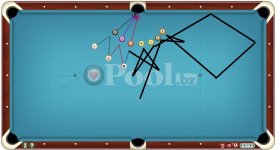Not to Nitpick

but I always disagree when people say this. I know I'm probably the only one who thinks this, but I believe keeping track of your "score" in completing skills is counterproductive. Now, to qualify that statement, if you have a 12 year old child who is learning to play and needs some kind of game score to make it fun, then that is fine. I also agree with the idea of taking notes at the end of a session to record things that you don't want to forget.
I disagree with the idea of cluttering your mind with "drill scores" while you are trying to learn a skill. When doing the Mosconi draw drill, for example, you will improve partly through trial and error. Every once in awhile, you will execute a perfect draw effortlessly and it will go right where you intended. You have to have your mind on what you are doing if you have any chance of recognizing what it is that you just did. You may find that your hand was more relaxed than usual, or that you kept your elbow still that time. These little revelations are what help you improve in the skill. IMO, if you clutter or occupy your brain with trying to keep track of a score, then you may miss those little nuances. If you are keeping score, then you are paying attention to that score. You can't help it... just like trying not to think of the pink elephant hanging above the pool table.
I say do the drill until your arm cramps up and pay attention to what you are doing on every stroke. Every once in awhile you will do something a little differently and it will work. Pay attention to those moments. That's the motivation.
